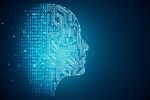What is the difference between artificial intelligence and business intelligence?
The terms business intelligence and artificial intelligence often appear in corporate communications, research reports or even in everyday conversation, but many people are not fully aware of what they mean exactly. In this article, we want to clarify these concepts and look at how they relate to each other.
Business intelligence (BI) encompasses the technologies, methods and applications that help businesses navigate through information and understand their business data. BI is designed to help you make informed and informed decisions using your data. In contrast, artificial intelligence (AI) is the science that seeks to give machines human-like intelligence and decision-making capabilities. It involves machine learning, deep learning and neural networks that allow machines to learn from their data and make decisions independently.
Let's see how these technologies can be applied in practice, what their advantages and disadvantages are, and how they differ.
Artificial Intelligence (AI)
AI is present in many areas of everyday life. It is widely used in pattern recognition, including image and sound processing and natural language processing. AI is even present in the entertainment industry.
The benefits of AI are numerous. It can speed up processes, provide more accurate predictions and improve decision-making. However, AI also raises ethical and security issues. Privacy and security risks remain a concern for professionals and users.
Business Intelligence (BI)
Business intelligence is a complex field with data at its core. This toolkit helps companies collect, analyse and visualise their data in real-time. The definition of business intelligence essentially means that a business intelligence tool uses resources and methods to access, analyse and use data as valuable information.
Generally speaking, data is the "raw material" of business intelligence, as it can be used to identify trends, make decisions and provide innovative ideas to business leaders.
Business intelligence can be applied to a wide range of areas, the three most common being:
- Decision support: business intelligence helps managers make effective, data-driven decisions. Decision-making can be used to drive business decisions to make informed decisions.
- Market trends and forecasting: with this type of data analysis, companies can better interpret market trends and anticipate changes, helping them to plan their business effectively.
- Customer analytics. Business intelligence is an ideal tool to understand customer behaviour, which can help to tailor offers and build long-term customer relationships.
However, like all technology, business intelligence is not perfect. Data security issues can arise as companies store and collect vast amounts of data about their customers. In addition, BI systems can be time-consuming and costly to implement and maintain, which smaller businesses in particular may find burdensome.
Differences between artificial intelligence and business intelligence
When using artificial intelligence (AI) and business intelligence (BI) in a business context, it is important to understand the dynamics between the two. AI, among other things, focuses on machine learning and automation. AI-based tools offer a range of predictive capabilities to help companies identify future trends and optimise business operations.
However BI promises more in terms of data collection and analysis. BI provides a comprehensive approach to managing vast amounts of data, enabling companies to make informed decisions. Data visualisation, a common feature of BI, allows users to see data sets in an easily understandable format.
In terms of technology, there are many differences between AI and BI. While MI is often based on complex algorithms and machine learning models, BI is essentially a software-level operation, handling data in a less complex but well-structured way.
From a usage perspective, AI is better suited to forecasting and processing data at a complex level. However, BI supports the analysis of empirical data and trends, which are critical for accurate business decision-making.
Both have their place in the modern business environment and fortunately, they can reinforce and support each other. Bixpert works with modern software that is business intelligence software but makes use of artificial intelligence solutions. By using these, we strive to serve our clients to the highest possible standard.
© 2020 Bixpert. All Rights Reserved.





















